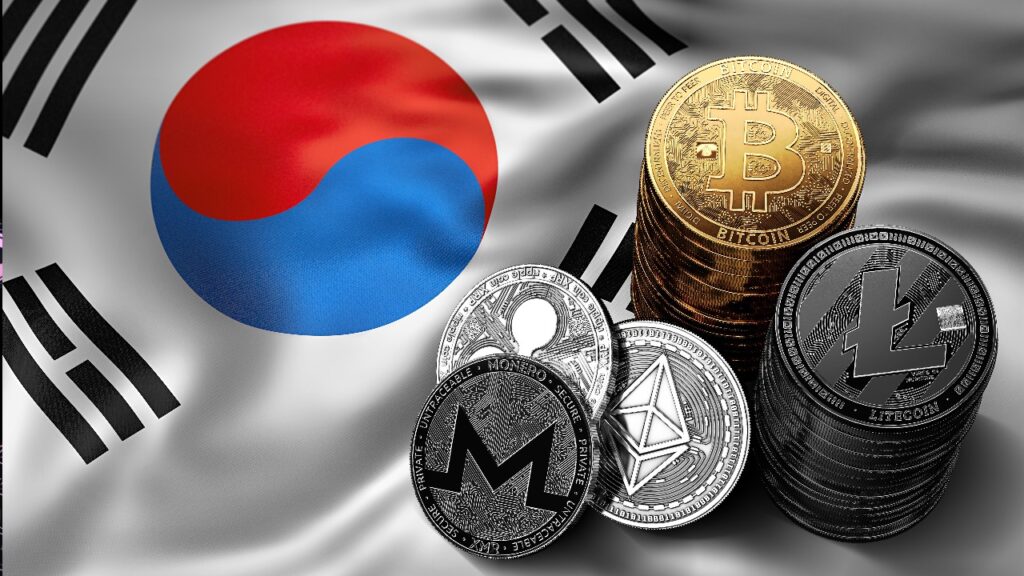Crypto Demand Surges in South Korea Amid Regulatory Pressure
As cryptocurrency demand skyrockets in South Korea, the government’s move to regulate digital assets has put local markets under pressure. Despite these challenges, South Koreans, particularly the youth, are flocking to cryptocurrency trading in pursuit of financial freedom amid high unemployment and economic hierarchies.
A Nation Turning to Crypto
-
Mass Adoption:
- One in three South Koreans either owns cryptocurrency or receives payment in digital assets.
- Over 10% of the country’s population actively trades cryptocurrencies.
-
Youth Engagement:
- High youth unemployment (above 10%) and competitive job markets drive young people toward crypto as an alternative source of income.
South Korea’s cultural and economic structures often enforce hierarchical norms, making financial stability a distant dream for many. Cryptocurrencies have emerged as a beacon of hope for those looking to break free from these limitations.
South Korea: A Global Crypto Powerhouse
South Korea boasts one of the world’s most robust economies, ranking:
- 4th largest in Asia
- 10th largest globally
Despite its extraordinary Human Development Index and moderate income inequality, the South Korean stock market is heavily dominated by four family-oriented conglomerates. This concentration has led citizens to seek alternatives, with cryptocurrencies becoming a preferred investment vehicle.
Recent reports indicate that South Korean cryptocurrency exchanges have surpassed the country’s stock market in trading volumes, signaling a clear shift in public interest.
The Rise of Crypto Day Trading
Local news outlets highlight a growing trend of South Korean youth leaving traditional jobs to explore cryptocurrency day trading. The appeal lies in the potential for high returns, even as the market remains volatile and challenging.
Regulatory Challenges
South Korea’s government is adopting a heavy-handed regulatory approach to control the booming cryptocurrency market. These measures include:
-
Stricter Compliance:
- Cryptocurrency exchanges must comply with stringent anti-money laundering (AML) and know-your-customer (KYC) requirements.
-
Increased Oversight:
- Regulators are scrutinizing digital asset platforms to ensure consumer protection and prevent market manipulation.
While aimed at creating a safer trading environment, these regulations have also added pressure to local markets, leaving many exchanges struggling to adapt.
Implications for South Korea’s Economy
-
Shift in Investment Trends:
- The rising popularity of cryptocurrencies could reduce the dominance of conglomerates in the stock market.
-
Economic Diversification:
- Increased crypto trading offers an alternative financial path for South Korea’s citizens, particularly its youth.
-
Regulatory Balance:
- The government must strike a balance between fostering innovation and ensuring market stability to maintain South Korea’s position as a global crypto hub.
Conclusion
The crypto demand in South Korea reflects the nation’s appetite for financial alternatives amid regulatory challenges and economic pressures. As one of the world’s leading contributors to cryptocurrency trading volumes, South Korea is a pivotal player in the global digital asset market.
While the government’s regulatory measures aim to create a safer trading environment, they must also support the innovation and freedom that attract citizens to cryptocurrencies in the first place.
South Korea’s embrace of cryptocurrency signifies more than just a financial trend—it is a cultural and economic shift that could redefine the country’s future.
To learn more about the trends shaping cryptocurrency adoption globally, explore our article on crypto market insights. Discover how nations are navigating regulation and innovation in the digital asset era.
Disclaimer: The information provided is not trading advice, Bitcoinworld.co.in holds no liability for any investments made based on the information provided on this page. We strongly recommend independent research and/or consultation with a qualified professional before making any investment decisions.




